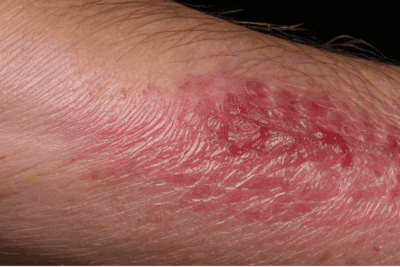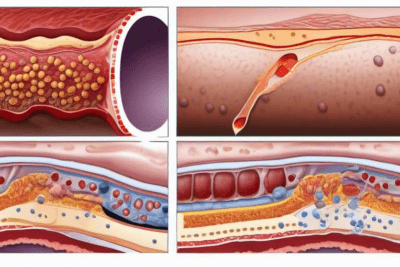
Hyperglycemia, also known as high blood sugar, is a critical condition that primarily affects individuals with diabetes. It occurs when the sugar levels in the blood are too high, posing a risk of serious health complications. Understanding and managing this condition is paramount for those affected. This article will delve into the symptoms, causes, and treatments of hyperglycemia, as well as offering insights on prevention strategies.
What you\'ll find in this article?
- What Is Hyperglycemia?
- What Causes Hyperglycemia?
- What Are the Symptoms of Hyperglycemia?
- How Is Hyperglycemia Diagnosed?
- How Is Hyperglycemia Treated?
- Can Hyperglycemia Be Prevented?
- Further Insights on Managing Hyperglycemia
- Hyperglycemia management
- How to cure hyperglycemia
- Hyper diabetes treatment
- What to do if experiencing hyperglycemia
- What to do if someone is hyperglycemic
- Related Questions on Hyperglycemia
What Is Hyperglycemia?
Hyperglycemia, often referred to as high blood sugar, is a condition characterized by excessive glucose in the bloodstream. It is commonly associated with diabetes, a chronic disease that impairs the body's ability to regulate blood sugar levels. Hyperglycemia can lead to various health issues, especially if it remains untreated over time.
The body typically regulates blood sugar levels with a hormone called insulin, which is produced by the pancreas. When there is a lack of insulin or resistance to it, blood sugar levels can rise, resulting in hyperglycemia. It is crucial to recognize the signs of this condition and seek medical advice to manage it effectively.
Monitoring blood sugar levels is an essential part of diabetes management and the prevention of hyperglycemia. With proper treatment and lifestyle adjustments, individuals can maintain control over their blood sugar levels and reduce the risk of complications.












What Causes Hyperglycemia?
Several factors can contribute to the development of hyperglycemia. The most common cause is diabetes, where the body's ability to produce or use insulin is impaired. In type 1 diabetes, the pancreas does not produce insulin, whereas type 2 diabetes involves insulin resistance.
Other causes of high blood sugar include stress, illness, a lack of exercise, or the consumption of certain medications. It's also possible for those without diabetes to experience hyperglycemia, typically due to extreme stress or hormonal imbalances. Identifying the underlying cause is a crucial step in managing high blood sugar.
Changes in lifestyle and diet, along with proper diabetes management, play a significant role in preventing and treating hyperglycemia. For those with diabetes, regular blood sugar monitoring is vital to ensure levels remain within a healthy range.
What Are the Symptoms of Hyperglycemia?
The symptoms of hyperglycemia can vary from person to person. Common signs include frequent urination, increased thirst, fatigue, and blurred vision. In severe cases, individuals may also experience nausea, vomiting, and difficulty concentrating.
Recognizing the symptoms early is crucial for preventing the progression of hyperglycemia and avoiding serious complications. If you notice any of these symptoms, especially if you are diabetic, it is important to check your blood sugar levels and consult with a healthcare professional.
Symptoms of high blood sugar in non-diabetics are similar, though they may arise due to different causes. Regardless, early detection and intervention are key to managing the condition effectively.
How Is Hyperglycemia Diagnosed?
Diagnosing hyperglycemia involves several tests to measure blood sugar levels. The most common are the fasting blood glucose test, the oral glucose tolerance test, and the A1C test, which provides an average blood sugar level over the past two to three months.
It's important to seek medical advice if you experience symptoms of high blood sugar. A healthcare provider can perform the necessary tests and determine the best course of action for managing your condition.
For those with diabetes, regular self-monitoring of blood glucose levels using a home glucose meter is an essential part of daily management and can help in the early detection of hyperglycemia.
How Is Hyperglycemia Treated?
Treatment for hyperglycemia is tailored to each individual's needs and depends on the severity of the condition. The main goal is to lower blood sugar levels to a safe range. This can be achieved through a combination of medications, insulin therapy, and lifestyle changes.
Diet and exercise are fundamental components of managing hyperglycemia. Eating balanced meals, reducing sugar intake, and staying active can all help to regulate blood sugar levels. Additionally, medication or insulin may be prescribed for individuals with diabetes to aid in glucose control.
It's crucial for individuals with diabetes to work closely with their healthcare team to develop a personalized treatment plan that includes medication, dietary guidelines, and physical activity recommendations.
Can Hyperglycemia Be Prevented?
While not all cases of hyperglycemia can be prevented, there are several strategies that can help reduce the risk. These include maintaining a healthy weight, following a balanced diet, exercising regularly, and adhering to diabetes management plans.
For diabetics, preventing hyperglycemia also involves careful monitoring of blood sugar levels and taking medications or insulin as prescribed. It is also important to manage stress effectively and seek regular medical check-ups to monitor health status.
Education on diabetes and hyperglycemia is vital. Understanding how to recognize symptoms and knowing when to seek medical help can make a significant difference in preventing complications associated with high blood sugar.
Further Insights on Managing Hyperglycemia
High blood sugar management is a continuous process that requires attention to detail and a commitment to following medical advice. Staying informed about the latest treatment options and research can empower individuals to take charge of their health.
Prevention strategies, such as adopting a healthy lifestyle and understanding the impact of dietary choices on blood sugar levels, are key to managing and preventing hyperglycemia. Support from healthcare providers, family, and friends can also play an essential role in successful management.
By taking a proactive approach to health, those at risk of hyperglycemia can improve their quality of life and reduce the likelihood of serious health issues down the line.
Hyperglycemia management
Effective management of hyperglycemia begins with regular monitoring of blood sugar levels. Individuals should routinely check their glucose levels to identify patterns and make necessary adjustments. This proactive approach helps in recognizing when levels are too high, allowing for timely intervention.
Diet plays a crucial role in controlling blood sugar levels. A balanced diet rich in whole grains, lean proteins, and healthy fats can stabilize glucose levels. It's essential to limit the intake of sugary foods and refined carbohydrates, which can cause rapid spikes in blood sugar.
In addition to diet, regular physical activity significantly contributes to managing hyperglycemia. Engaging in consistent exercise helps improve insulin sensitivity and lowers blood sugar levels. Aim for at least 150 minutes of moderate aerobic activity each week to promote better glucose control.
For some individuals, medication may be necessary to manage hyperglycemia effectively. Insulin therapy or oral medications can assist in regulating blood sugar levels when lifestyle changes alone are insufficient. It’s important to work closely with healthcare providers to determine the best treatment plan.
Lastly, stress management is vital in preventing hyperglycemia. Stress can lead to hormonal changes that increase blood sugar levels. Techniques such as mindfulness, meditation, and yoga can help reduce stress, promoting overall well-being and better glucose control.
How to cure hyperglycemia
To effectively cure hyperglycemia, it is crucial to monitor blood sugar levels regularly. This allows individuals to identify spikes and take necessary actions to bring their glucose levels back to a normal range.
Incorporating a balanced diet rich in fiber, whole grains, and lean proteins can significantly help in managing blood sugar levels. Avoiding processed foods and high-sugar snacks is essential for maintaining stability.
Regular physical activity is another key component in curing hyperglycemia. Engaging in at least 150 minutes of moderate exercise each week can enhance insulin sensitivity and aid in glucose regulation.
In some cases, medications might be necessary to manage hyperglycemia effectively. Consulting with a healthcare professional can help determine the appropriate treatment plan based on individual needs.
Lastly, managing stress through techniques such as meditation or yoga can also play a vital role in controlling blood sugar levels, as stress can contribute to spikes in glucose.
Hyper diabetes treatment
The treatment of hyperglycaemia primarily involves lifestyle modifications, including a balanced diet and regular physical activity. These changes help maintain blood sugar levels within a healthy range and can significantly reduce the risk of complications.
In addition to lifestyle changes, medications may be prescribed to help manage hyperglycaemia. Insulin therapy is often necessary for individuals with type 1 diabetes, while those with type 2 diabetes may benefit from oral hypoglycemic agents.
Monitoring blood sugar levels is crucial for effective management of hyperglycaemia. Regular checks can help individuals understand how their body responds to food, exercise, and medication, allowing for more informed decisions regarding their treatment plan.
Education and support play a vital role in managing hyperglycaemia. Patient education on recognizing symptoms and understanding treatment options can empower individuals to take control of their health and prevent serious complications.
What to do if experiencing hyperglycemia
If you find yourself experiencing hyperglycemia, the first step is to check your blood sugar levels. This will help you determine how high your levels are and if you need to take action. If your blood sugar is significantly elevated, it’s important to take measures to lower it effectively.
One effective method to manage hyperglycemia is to increase your physical activity. Engaging in light exercise, such as walking, can help to lower blood sugar levels by promoting glucose uptake by the muscles. However, it's essential to monitor your blood sugar closely, as exercise can sometimes lead to fluctuations.
You should also consider staying hydrated by drinking plenty of water. Proper hydration helps your kidneys flush out excess sugar through urine. Avoid sugary drinks, as they can worsen hyperglycemia and lead to further complications.
If your blood sugar remains high, it may be necessary to adjust your medication or insulin dosage. Consult with your healthcare provider for specific guidance on how to manage your medication in response to elevated blood sugar levels.
Lastly, monitor your symptoms closely. If you experience severe symptoms such as nausea, vomiting, or difficulty breathing, seek medical attention immediately. Being proactive in managing hyperglycemia can help prevent more serious health issues.
What to do if someone is hyperglycemic
If someone is experiencing hyperglycemia, it is crucial to check their blood sugar levels immediately. Use a blood glucose meter to determine how high their levels are. If the reading is significantly elevated, it is important to act quickly to prevent further complications.
Encourage the individual to stay hydrated by drinking plenty of water. This can help dilute the excess sugar in the bloodstream and may assist in bringing blood sugar levels down. Avoid sugary drinks, as they can exacerbate the situation.
If the person is a diabetic and has prescribed medication, they should take their medication as directed. This may include insulin or oral hypoglycemic agents. If symptoms persist or worsen, contacting a healthcare professional is essential.
Monitoring for symptoms of diabetic ketoacidosis is also important, especially if the person has type 1 diabetes. Symptoms such as nausea, vomiting, abdominal pain, or difficulty breathing require immediate medical attention.
Lastly, educate the individual on preventive measures to avoid future episodes of hyperglycemia. This includes maintaining a balanced diet, regular physical activity, and consistent monitoring of blood sugar levels to ensure they remain within a healthy range.
What Is High Blood Sugar Level for Hyperglycemia?
A high blood sugar level for hyperglycemia is typically considered above 180 mg/dL after meals and above 130 mg/dL before meals. However, targets can vary based on individual health profiles.
Consistent readings above these levels may indicate hyperglycemia. It is important to consult with a healthcare provider for personalized guidance and management.
What Can Cause High Blood Sugar (Hyperglycemia)?
High blood sugar (hyperglycemia) can be caused by factors such as insufficient insulin, overeating, lack of exercise, stress, or illness. In people without diabetes, it could be due to hormone imbalances or severe stress.
Recognizing and managing these contributing factors is crucial in preventing and controlling hyperglycemia.
What Is a Hyperglycemic Crisis Blood Sugar Level?
A hyperglycemic crisis, also known as diabetic ketoacidosis or hyperosmolar hyperglycemic state, occurs when blood sugar levels exceed 250 mg/dL and the body starts using fat for energy, resulting in ketones.
This is a medical emergency that requires immediate attention. If you or someone you know is experiencing such high levels, seek medical help right away.
What Are Three Signs of Someone Who Has High Blood Sugar (Hyperglycemic)?
Three common signs of high blood sugar (hyperglycemic) include frequent urination, increased thirst, and persistent fatigue. Other symptoms may include blurred vision and slow-healing wounds.
Being aware of these signs can help individuals take timely action to manage their blood sugar levels.
To provide a visual aid on the topic, let's take a look at an informative video.
In conclusion, understanding and managing hyperglycemia is key to preventing serious health complications associated with high blood sugar. Through proper monitoring, treatment, and lifestyle changes, individuals can maintain control over their condition and lead healthy lives. If you have concerns about your blood sugar levels, consult with a healthcare professional for personalized advice and recommendations.









